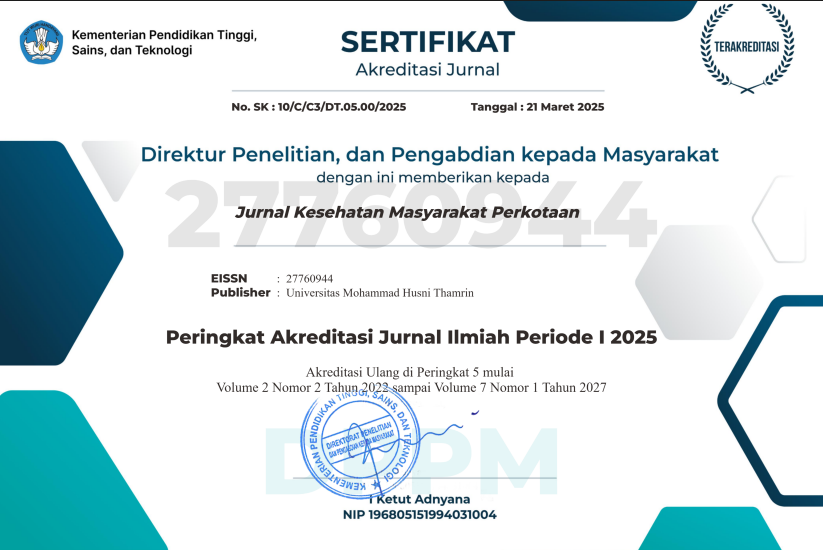Housewives' Perceptions of Long-Term Contraceptive Methods (LMPs) in Cikahuripan Village
DOI:
https://doi.org/10.37012/jkmp.v5i2.3040Abstract
Currently, the use of Long-Term Contraceptive Methods (MKJP) in Indonesia is still very low despite its high level of effectiveness in reducing birth rates and increasing the success of the Family Planning (KB) program. The low use of MKJP indicates differences in perception, knowledge, and social acceptance among women of childbearing age, especially housewives. This study aims to determine the perceptions of housewives towards the use of MKJP in Cikahuripan Village, Klapanunggal District, Bogor Regency. This study used a qualitative approach with an exploratory design through in-depth interviews with seven informants selected purposively on January 13–15, 2025. Data analysis was carried out using thematic analysis techniques according to Braun & Clarke (2006) using source triangulation to increase data validity. The results of the study indicate that housewives' perceptions of MKJP are influenced by internal and external factors. Internal factors include the level of knowledge, previous experience, and motivation from husbands and health workers to minimize side effects. External factors include the influence of the social environment, user testimonials, ease of access to consultations, and the role of social media in promotion. It was concluded that comprehensive education, a persuasive approach, and cross-sector support were able to increase the trust and participation of housewives in choosing MKJP. One of the factors influencing the low use of MKJP is the perception of housewives towards this method.
Downloads
Published
How to Cite
Issue
Section
Citation Check
License
Copyright (c) 2025 Lini Karlina, Ajeng Tias Endarti

This work is licensed under a Creative Commons Attribution 4.0 International License.
Jurnal Kesehatan Masyarakat Perkotaan allows readers to read, download, copy, distribute, print, search, or link to the full texts of its articles and allow readers to use them for any other lawful purpose. The journal allows the author(s) to hold the copyright without restrictions. Finally, the journal allows the author(s) to retain publishing rights without restrictions Authors are allowed to archive their submitted article in an open access repository Authors are allowed to archive the final published article in an open access repository with an acknowledgment of its initial publication in this journal.

Lisensi Creative Commons Atribusi 4.0 Internasional.











